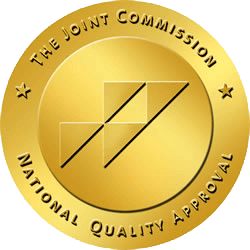 People of all ages can feel stressed out, with some of them making poor choices in how they cope. Drug and alcohol use may look like a fun, quick fix, but over time, substance use can have devastating consequences, including addiction. Meditation therapy is one treatment option in a well-rounded addiction treatment program. Find out the benefits of meditation that you can enjoy for life.
People of all ages can feel stressed out, with some of them making poor choices in how they cope. Drug and alcohol use may look like a fun, quick fix, but over time, substance use can have devastating consequences, including addiction. Meditation therapy is one treatment option in a well-rounded addiction treatment program. Find out the benefits of meditation that you can enjoy for life.
About Meditation
Meditation takes different forms. It’s not always sitting down and repeating “Om” as your mantra. The purpose of meditation therapy is to foster calmness and peace. When a person meditates, he focuses only on the present moment. He doesn’t fret over the past or worry about the future.
While seated meditation is popular, you can meditate while gardening or hiking along wooded trails. You can do it silently or repeat a word or phrase that deepens your focus.
Benefits of Meditation Therapy
With so much going on in your daily life, you may find it difficult to have any moments to yourself. Even if you do, you might spend your time feeling anxious about what’s coming up next.
A meditation therapy program can be helpful in easing your anxiety and worry. Meditation has proven benefits, such as:
- Stress and anxiety reduction
- Increased well-being
- Improved emotional health
- Increased concentration and focus
- More restful sleep
People who use drugs and alcohol are often lacking these benefits. They don’t have effective coping skills to handle stress or depressed feelings, so they use instead.
The good thing about meditation therapy is that you can practice it anywhere at any time. You don’t have to attend a formal class or wear anything special. All you need is a quiet space, whether you only have a few minutes or an hour.
Meditation Therapy in Addiction Treatment
Not everyone reacts to stress and negative emotions in the same way. Some people can shrug off minor events or take a few days (perhaps weeks) to work through major issues.
Other people have a hard time coping with anger, stress, sadness, or anxiety on their own. They may turn to drug and alcohol use as their coping mechanism. However, the feeling of calmness or relaxation that addictive substances produce is short-lived and false. When dependency turns into addiction, rehab is usually the only way someone can hope to break out of the damaging cycle of drug and alcohol use.
When you or a loved one seek rehab, a meditation therapy program may be one of the treatment options. Meditation won’t be the only treatment; it should be used alongside evidence-based options (such as psychotherapy and family therapy) as part of a comprehensive approach.
Meditation rewires the brain’s pathways in positive ways. It reduces areas linked to stress and anxiety while increasing areas associated with self-awareness and memory.
As clients practice meditation, they learn how to foster a sense of tranquility and peace. They realize they can do this naturally and without drugs and alcohol. Once rehab ends, they can continue their own meditation therapy program whenever they feel stressed out, anxious, or depressed.
A Treatment Destination Just for Teens
Are you a parent who’s worried about your adolescent’s growing substance use problem? The time to seek treatment is now, and Destinations for Teens can help. We’re an addiction treatment and mental health facility that only treats teenagers.
In addition to evidence-based treatment models such as individual and cognitive behavioral therapy (CBT), we also offer therapeutic services that enhance teenagers’ personal growth and self-expression. Our programs include:
- Surf therapy program
- Music therapy
- Yoga
- Rock therapy
Whether it’s addiction to heroin, marijuana, or alcohol your family is struggling with, our caring team can help. We provide a range of therapeutic services, including meditation therapy, that will put your teenage son or daughter back on the right track. Reach out to us today at 877-466-0620 to find out how your child can attain sustainable recovery.

